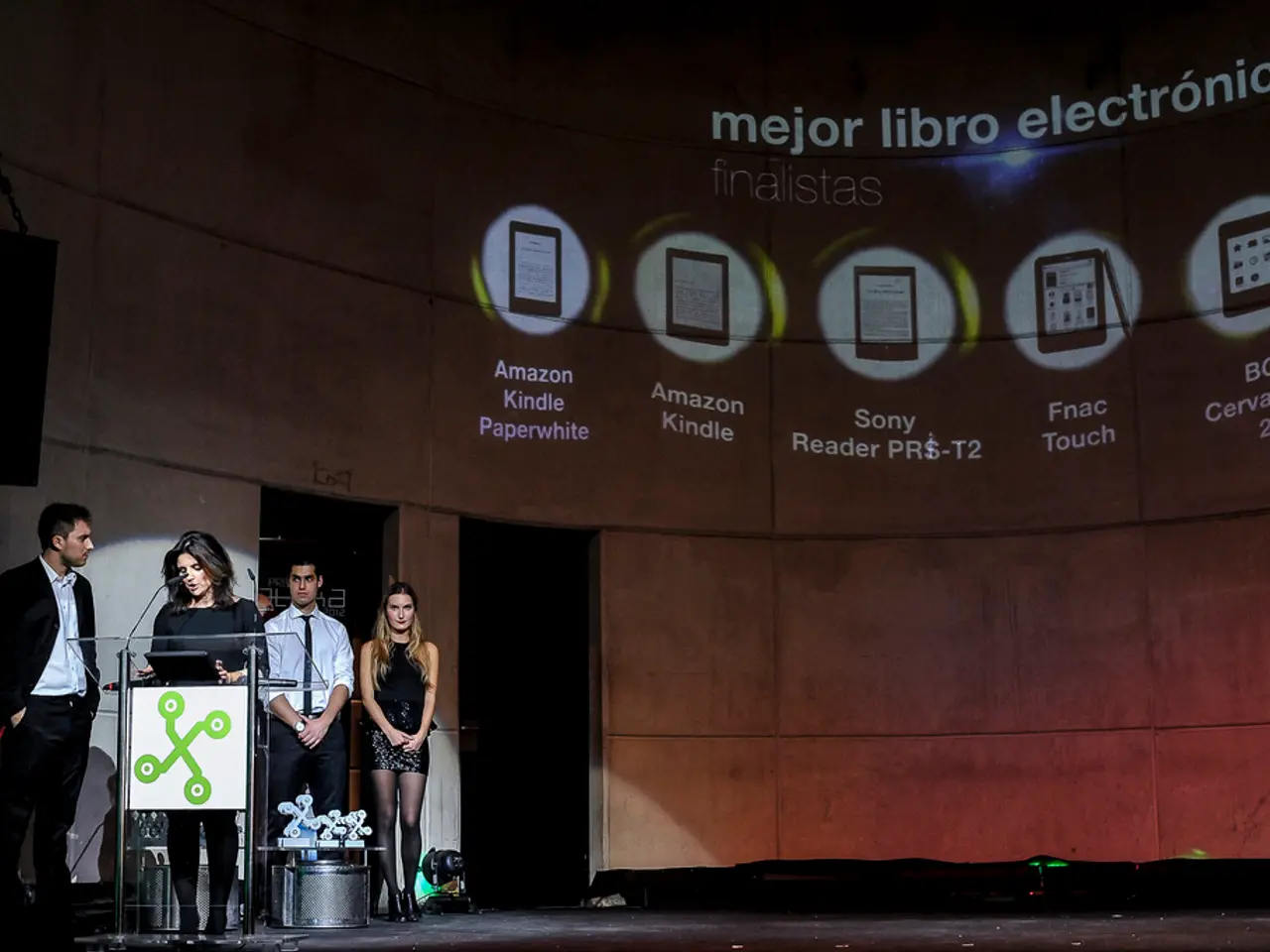Restructuring Artificial Intelligence: Crafting Ethical AI for the Creative Industries
In the ever-evolving world of artificial intelligence (AI), the debate about its impact on society, particularly in the creative industries, is a pressing concern. AI companies like Anthropic claim to prioritise human benefit, but this ideal often clashes with lived experience.
The rapid advancement of AI is reshaping how culture is made and shared, raising questions about who gets to create, whose voices are erased, and what systems shape the future of expression. Ve Dewey, an Industry Champion, has identified several key challenges for responsible AI design in the creative industries.
One of the major challenges is the risk of erasing diverse voices and narrowing who gets to create, threatening cultural diversity and free expression central to democratic societies. Another challenge is the lack of structural governance to protect imagination, creative agency, and originality amid exponential AI growth. The systemic nature of AI, as an interconnected infrastructure influencing how people live and interact culturally, means it is not just a tool disruption but a profound design challenge with generational stakes.
To address these challenges, Dewey advocates approaches that go beyond mere technical fixes. These include embedding responsibility into AI’s very design, protecting cultural diversity through inclusive, pluralistic governance structures, avoiding centralisation by rethinking how AI systems are built, shared, and governed, and balancing free cultural expression, imagination, and dialogue in AI systems.
In the summer of 2025, WeTransfer updated its terms of service to permit user content for AI training, causing a backlash. This incident highlights the urgency of sector-informed processes for responsible AI in the creative industries. Without new governance models, we risk reproducing extractive colonial logics in our cultural systems.
The international context adds urgency, as in July 2025, the U.S. signed an Executive Order targeting so-called "woke AI", effectively removing equity, diversity, and inclusion from federally supported AI development. This move underscores the need for robust, inclusive, and participatory governance in the creative industries.
Efforts to include ethicists in AI development are commendable, but there is still a lack of structural governance to protect imagination, creative agency, and originality. Initiatives like the Inclusive AI Lab, co-founded by Laura Herman and Professor Payal Arora, embed inclusion through participatory governance and community-led research.
Meanwhile, some firms like Adobe are starting to link governance to creative risk, but this remains the exception. To ensure a future where imagination is preserved and originality is fostered, the UK's creative sector needs to embrace an interdisciplinary and systemic mindset that embeds responsibility into AI’s very design.
Creativity is not just a product, but a process that requires safeguarding the conditions that enable cultural expression. Opacity in AI systems is a form of power that can obscure accountability and concentrate control. To prevent this, it is crucial to maintain transparency and promote dialogue between AI developers, ethicists, and creatives.
In conclusion, responsible AI design in the creative industries requires building infrastructures that preserve imagination and creative agency, protect pluralism, and foster democratic cultural expression while carefully governing power concentration and influence on culture. The stakes are high, and the time for action is now.
- The debates about artificial intelligence (AI) in the creative industries focus on its transformative impact on culture, raising concerns about the erasure of diverse voices and the threat to cultural diversity and free expression.
- Ve Dewey, an Industry Champion, has identified several challenges for responsible AI design in the creative industries, including the lack of structural governance to protect imagination, creative agency, and originality.
- To address these challenges, Dewey advocates approaches that embed responsibility into AI’s very design, protect cultural diversity, avoid centralization, and balance free cultural expression, imagination, and dialogue in AI systems.
- The rapid technological advancement of AI presents a profound design challenge with generational stakes, as it is not just a tool disruption but an interconnected infrastructure influencing cultural systems.
- In July 2025, the U.S. signed an Executive Order targeting so-called "woke AI", highlighting the urgency for robust, inclusive, and participatory governance in the creative industries.
- To prevent opacity in AI systems, it is crucial to maintain transparency and promote dialogue between AI developers, ethicists, and creatives, ensuring a future where imagination is preserved and originality is fostered in the creative industries.




